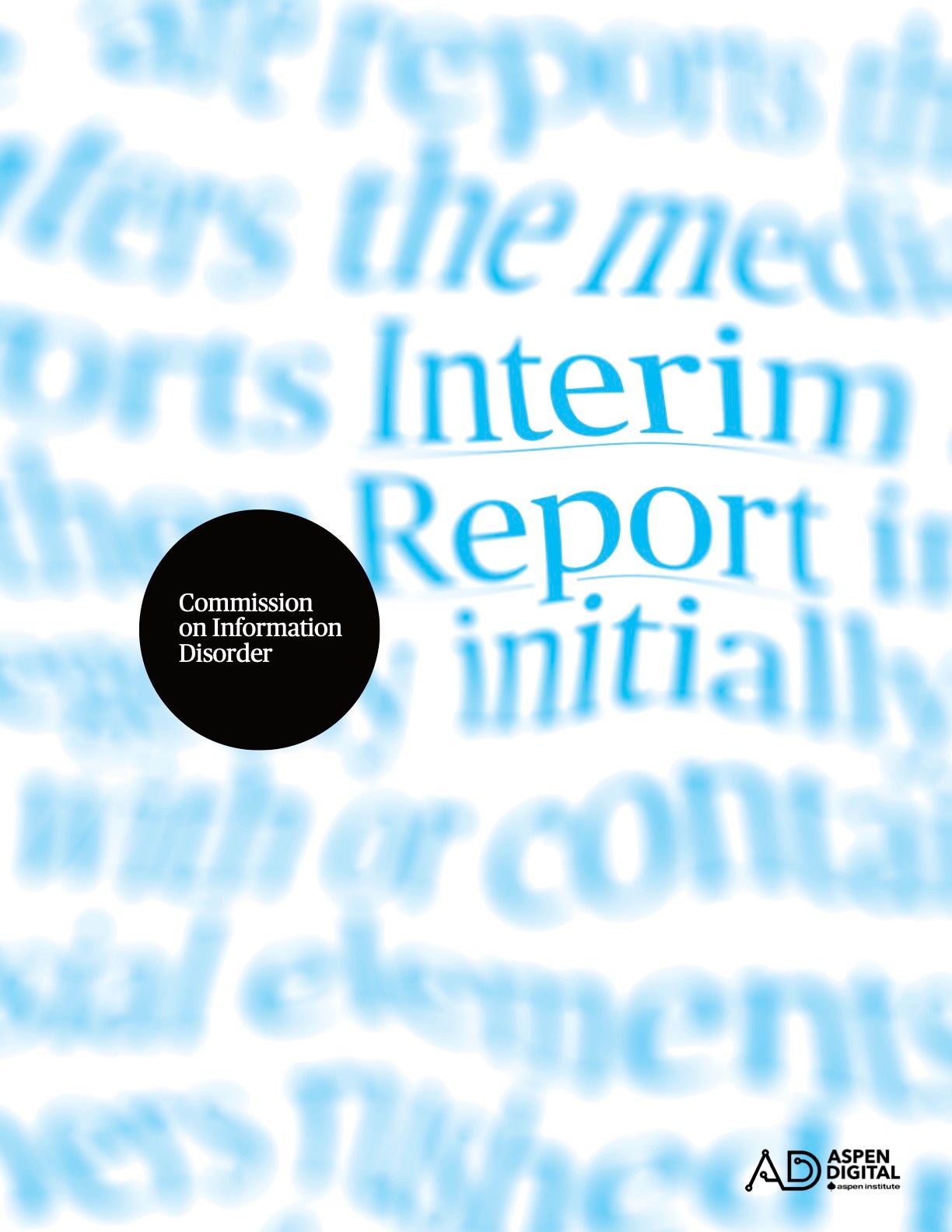We are living in a time of increased polarization, a rise of propaganda, extremism, distrust of institutions and of each other, racially and ethnically driven attacks, embrace of conspiracy theories, skepticism towards expertise, disbelief in evidence-based reality, and online and media filter bubbles that obscure or confuse uncomfortable facts and truths.
No single one of these conditions is unprecedented; any one of them constitutes a significant challenge. What is unique about this moment in American history is the collision of all of these crises, which together form a dire threat to communities, to livelihoods and economic well-being, to public health, and to democracy itself. These threats are amplified — and sometimes created — by malicious actors, some of whom are driven by profit, and by others who weaponize divisions for their own objectives, such as foreign intelligence services.
To make actionable recommendations for addressing these challenges in the near term as well as chart a path for a series of longer-term interventions, the Aspen Institute’s Commission on Information Disorder has identified three priorities for which it will develop recommendations in the second stage of its work: (1) reducing harms, (2) increasing transparency and understanding, and (3) building trust.
An effort of the Aspen Digital program representing a diversity of perspectives, expertise, and experience, the Commission not only seeks to counter disinformation but also aspires toward a better state of information, one that goes beyond reliable facts to achieve more effective ways of understanding one another and that renews avenues for building trust. Co-chaired by renowned journalist Katie Couric, cybersecurity expert Chris Krebs, and racial justice leader Rashad Robinson, the group hopes to build communities together, online and in person, where individuals can disagree on policy and process without becoming enemies.
The Interim Report can be read here. The next phase of work will include a deeper exploration of the Commission’s three priorities, through which the group will develop its final recommendations. Individuals and organizations working in this space are invited to engage with the Commission on their own relevant work to help ensure it builds on existing studies and initiatives with shared goals. It should be noted that the Commission on Information Disorder represents the views and recommendations of its members, and does not necessarily reflect the views of the Aspen Institute.


